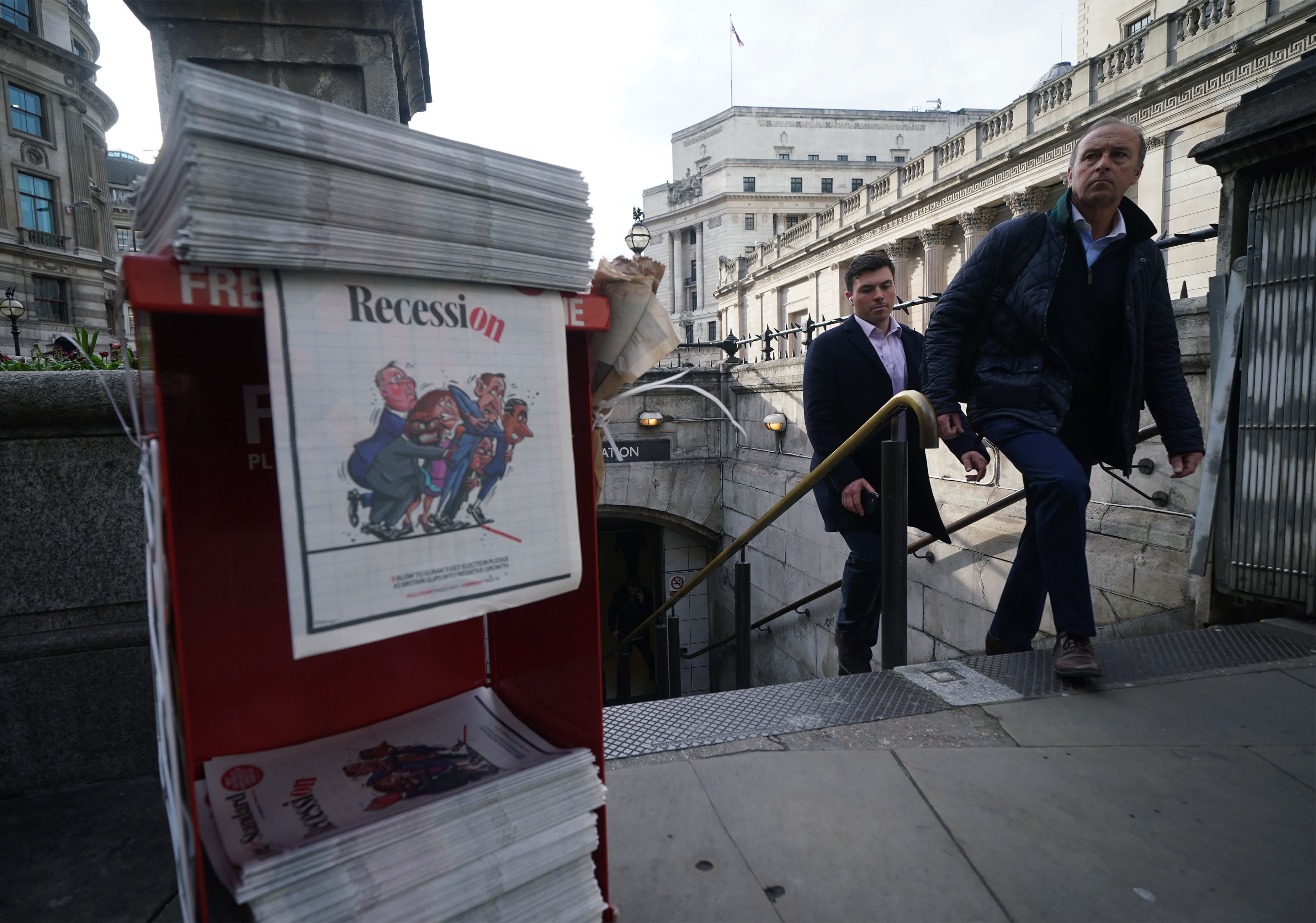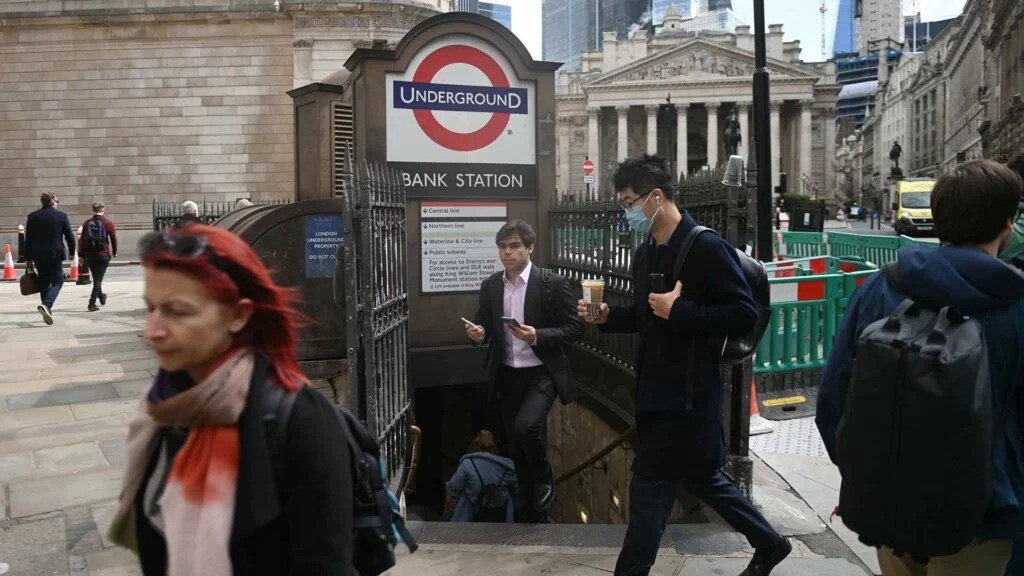UK Falls Into Recession, With Worst GDP Performance In Years
UK falls into recession, with worst GDP performance in years. The recession was recorded at the end of last year as households facing financial strain scaled back their spending amidst a cost of living crisis, dealing a significant blow to Rishi Sunak’s pledge to spur growth.
Author:Rhyley CarneyReviewer:Paula M. GrahamFeb 16, 20243.4K Shares46.4K Views

UK falls into recession, with worst GDP performance in years. The recession was recorded at the end of last year as households facing financial strain scaled back their spending amidst a cost of living crisis, dealing a significant blow to Rishi Sunak’s pledge to spur growth.
According to the Office for National Statistics, gross domestic product (GDP) declined by a larger-than-anticipated 0.3% in the final three months of December, marked by decreases across all key sectors of the economy and a sharp drop in retail sales leading up to the holiday season.
This downturn followed a 0.1% decrease in the third quarter, confirming two consecutive quarters of declining national output - meeting the technical definition of a recession. The official acknowledgment of a recession is likely to be a source of embarrassment for the prime minister ahead of an anticipated general election this year, particularly given his commitment to economic growth as one of his government's top priorities.
Rachel Reeves, the shadow chancellor, declared that Sunak’s assurance was shattered after years of economic stagnation under the Conservatives. "This is Rishi Sunak’s recession, and the news will be deeply worrying for families and business across Britain," she remarked.
The Office for National Statistics reported that growth throughout 2023 was estimated at 0.1%, marking the weakest performance since 2009, excluding the economic collapse in 2020 during the COVID pandemic.
Highlighting a significant economic downturn as households face soaring prices and increased borrowing costs, official data reveals that economic growth per capita contracted for seven consecutive quarters, the worst streak since modern records began in 1955.
Liz McKeown, the director of economic statistics at the ONS, stated, "Our initial estimate indicates that the UK economy contracted in the fourth quarter of 2023. While it has now shrunk for two consecutive quarters, overall, the economy remained relatively flat throughout 2023."
“„All the main sectors fell on the quarter, with manufacturing, construction and wholesale being the biggest drags on growth, partially offset by increases in hotels and rentals of vehicles and machinery.- Liz McKeown
Economists had anticipated a mild recession towards the end of last year as households faced increased borrowing expenses and elevated prices for everyday necessities, prompting cutbacks in other areas. Widespread strikes across various sectors and heavy rainfall further subdued economic activity.
However, more recent observations from the economy indicate a resurgence in consumer confidence since the beginning of this year, supported by the likelihood of interest rate reductions from the Bank of England as inflationary pressures ease.
Andrew Bailey, the governor of the Bank, played down the importance of the quarterly GDP figures this week, indicating that there were indications of an economic upswing that would become more evident in the coming months.
The chancellor, Jeremy Hunt, remarked, "High inflation is the single biggest barrier to growth, which is why halving it has been our top priority. While interest rates are high - so the Bank of England can bring inflation down - low growth is not a surprise."
“„But there are signs the British economy is turning a corner. Forecasters agree that growth will strengthen over the next few years, wages are rising faster than prices, mortgage rates are down and unemployment remains low. Although times are still tough for many families, we must stick to the plan - cutting taxes on work and business to build a stronger economy.- Jeremy Hunt
The Bank is widely expected to commence interest rate cuts as early as this summer due to mounting concerns about the economy's strength following 14 consecutive hikes in borrowing costs in response to surging inflation. Official figures released this week show that inflation unexpectedly remained steady at 4% in January, down from over 10% a year ago.
According to the Organisation for Economic Co-operation and Development, economic growth is projected to surpass that of France and Germany this year, reaching 0.7%, but lagging significantly behind the US and several other advanced economies.
The ONS noted that while the UK economy was approximately 1% larger than its pre-pandemic level, it still trailed behind every other country in the G7 group of leading developed nations except Germany. The latest report from the ONS revealed weakness across various sectors of the economy at the end of last year, with GDP declining amid a challenging Christmas shopping season for retailers.
Commenting on the strain on household spending due to the cost of living crisis, the ONS reported that output in the UK's dominant services sector had decreased for three consecutive quarters, with a 0.2% decline in the final three months of 2023.
Suren Thiru, the economics director at the Institute of Chartered Accountants in England and Wales, remarked, "Though the shallowness of this recession provides comfort, these figures also confirm that our economy remained locked in a cycle of persistent stagnation throughout 2023 as a myriad of headwinds, including high inflation, weighed heavily on activity."

Rhyley Carney
Author

Paula M. Graham
Reviewer
Latest Articles
Popular Articles
